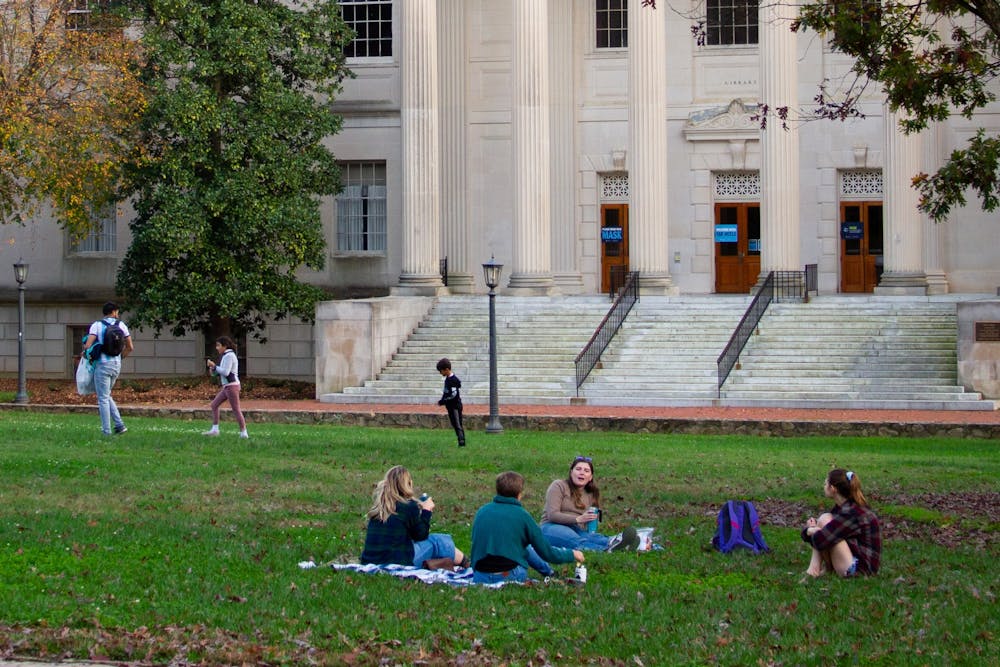The University is scheduled to return to in-person classes on Feb. 8. But for many students, especially those in the disabled community, the prospect of in-person instruction increases the already heightened threat of COVID-19.
The Disability Advocates Committee of the Campus Y at UNC sent a letter to Chancellor Kevin Guskiewicz on Wednesday, petitioning the administration to continue to delay the start of in-person instruction until it is safe for all students.
“We ask the administration to ensure that classes remain solely online until herd immunity is reached in order to meet their obligation of providing a safe and accessible learning environment that protects the whole community,” DAC said in the letter.
Austin Tyner, a junior and a chairperson of the committee, proposed the idea at a committee meeting last week, and members collectively wrote the letter to include the needs and suggestions of students with different types of abilities.
Tyner said she never expected to actually have to publish the letter because she assumed the University would announce classes would remain online. But with no move to stay the remote course, Tyner said she knew she had to take further action.
“UNC opening in person will cause damage to the disabled community,” Tyner said. “They’re already causing harm by drawing this many people to campus and exposing disabled people in the community to people on campus.”
The letter highlighted ways the DAC believes the University has neglected to adequately handle COVID-19 and prepare for in-person instruction, including not requiring regular testing for faculty and staff.
According to UNC Media Relations, 31 percent of students are scheduled to have an in-person class. These students are required to get tested twice per week at a UNC testing site, but Tyner said there appear to be no consequences for those who get tested after the next test date listed in HallPass, the UNC website used for testing.
The letter stated that the University's unclear and often last-minute communication about these procedures and others has led to added pressure on disabled students.



